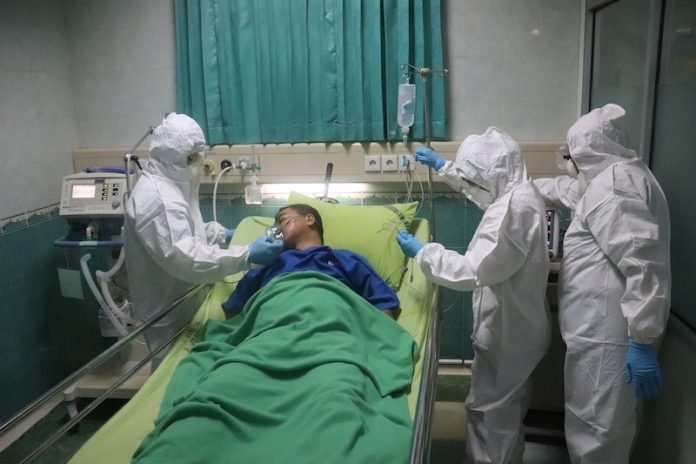
Scientists from the University of Florida found that among patients hospitalized for COVID-19 who seemingly recovered, severe systemic inflammation during their hospitalization is a risk factor for death within one year.
The research is published in Frontiers in Medicine and was conducted by Prof. Arch G. Mainous III et al.
Evidence continues to gather that “long COVID,” that is, continued negative health impacts months after apparent recovery from severe COVID-19, is an important risk for some patients.
A previous study from the team found that hospitalized patients who seemingly recovered from severe COVID-19 run more than double the risk of dying within the next year.
In the study, the team examined electronic health records of 1,207 adults hospitalized in 2020 or 2021 after testing positive for COVID-19 and who had been followed up for at least one year after discharge.
They found the blood level of inflammation marker during hospitalization was strongly correlated with the severity of COVID-19.
COVID-19 patients with the highest CRP concentration measured during their hospital stay had a 61% greater hazard—corrected for other risk factors—of dying of any cause within one year of discharge from the hospital than patients with the lowest CRP concentration.
Importantly, the team showed that the elevated hazard of death from any cause linked to severe inflammation was lowered again by 51% if the patient was prescribed anti-inflammatory steroids after their hospitalization.
These results mean that the severity of inflammation during hospitalization for COVID-19 can predict the risk of subsequent serious health problems, including death, from long COVID.
They also imply that current recommendations for best practice may need to be changed, to include a more widespread prescription of orally taken steroids to COVID-19 patients upon their discharge.
If you care about COVID, please read studies that COVID-19 may strongly change your brain, and this plant extract can inhibit COVID-19 virus.
For more information about COVID, please see recent studies that people with this heart problem 5 times more likely to die in COVID-19, and results showing this new drug can block multiple COVID-19 variants.
Copyright © 2022 Knowridge Science Report. All rights reserved.



